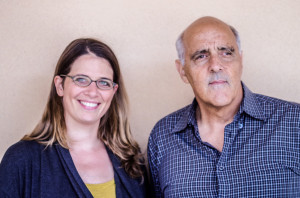The WSD Handa Center for Human Rights and International Justice, which has been housed at the UC Berkeley since 2000, recently relocated to Stanford’s campus, where it will work within Stanford Global Studies (SGS).
The Center, previously known as the War Crimes Studies Center, works in the field of International Humanitarian Law and is committed to working directly with post-conflict societies, as well as conducting research. According to their website, the Center is “dedicated to promoting the rule of law, accountability, and human rights around the world.”

“We’ve always been focused on reaching places that are under-noticed or under-discussed,” said Penelope Van Tuyl, the associate director of the Center. This philosophy has sent students and young lawyers all over the world, to places like Cambodia, Bangladesh, Indonesia and Sierra Leone.
Van Tuyl and David Cohen, the director of the Center, both said that moving the Center’s operations to Stanford would provide more opportunities, allowing the Center to increase their programming. Stanford’s resources will only further the Center’s already impressive reach around the world.
“We moved to Stanford as part of SGS. There are lots of benefits; we will be joining a network of centers. There will be a built-in platform, a home base,” Van Tuyl said. According to professor Cohen, the transition was made possible by the Worldwide Support for Development Foundation and the Stanford dean of Humanities and Sciences.
Those who sign on for internships through the Center are sent to post-conflict areas to monitor and write about war crimes tribunal proceedings there.
One student, Daniel Mattes ’ 12, found out about the Center—which was at the time still at Berkeley—through the current director, David Cohen, who has been a visiting professor at Stanford for the past three years. After taking professor Cohen’s class on international tribunals in the spring of 2011, Mattes became involved with the Handa Center and after his graduation in 2012 was flown to Cambodia to monitor the Khmer Rouge tribunal.
As an intern with the Center, Mattes was able to produce meaningful work. Each week, after taking a copious number of notes from the proceedings, he would compile that week’s worth of recordings into a report. From these notes he would work with Khmer Mekong Films, a major film and television company in Phnom Penh, to broadcast a weekly shown on the tribunal proceedings. Through the show, Cambodian news journalists could present important information to the public, who is often kept in the dark about such proceedings.
According to Mattes, the opportunity to spend seven months in Cambodia was a significant one: “[It] really opened me up to a lot of subjects and people that I hadn’t ever thought of pursuing before. I had only ever studied Cambodia in class, about the genocide and the tribunal, but being there—Cambodia is now very important to me,” he said. Mattes is now going to graduate school at the London School of Economics (LSE) and studying Southeast Asian politics. “It has changed my path in life,” he continued.
While the center has a hands-on, in-the-field approach to their philosophy, they also conduct research and handle historical archival work, gathering materials from past and current war crimes tribunals. Through their ongoing project called The Virtual Tribunal, the Center hopes to make these valuable materials fully available to the public in a comprehensive online database. That archival process has been four years in the making, and, according to Van Tuyl, will not be finished for several years.
With increased resources, the Center will likely take on a few new areas of focus, namely, religious tolerance, and human trafficking. There are also plans to collaborate with a number of existing programs at Stanford to widen the possibilities for the Center.
Contact Josie Hodson at jhodson ‘at’ stanford.edu.
